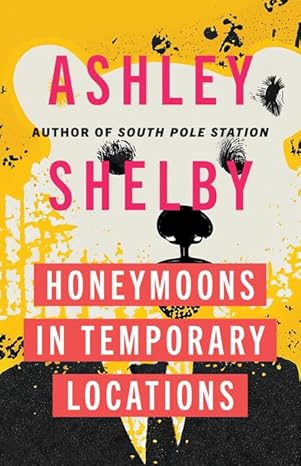
A dark take on climate apocalypse and our betrayal of the natural world.
Honeymoons in Temporary Locations is a collection of short story works that explores the term “solastalgia” which refers to the grief humans experience as the natural world changes around them, a sort of homesickness for vanished places.
We’ve all born witness to instances of solstalgia, glowing descriptions of caves off the Baja coast packed with enormous pacific lobster or the ice-skating pond in New Hampshire that froze over every winter. But Ashley Shelby takes us a few years into a future in which solstalgia is a widespread debilitating condition.
“But grief is not pathological. It is the inevitable endpoint of love. Solstalgia exists because we love nature. And as long as we love nature, there is hope for us”
The solstalgia rife “post-impact” world is explored in short stories, vignettes, Craigslist posts, brochures, advertisements, podcast transcripts, governmental questionnaires, etc.
Characters succumb to or battle against their diagnosis in a variety of bizarre but poignant scenarios while others attempt to leverage their suffering, still angling for personal gain in a game-over situation.
Meanwhile, the malaise of modern life and the anxieties of late-stage capitalism give way to “reality-based fear”. Climate migrants battle with government bureaucracies, the wealthy stock bunkers and abandoned missile silos with luxury goods, and the elderly quietly check out.
“It’s difficult to understand the nature of reality when you stand with one foot in a vanished world and the other in chaos.”
Lovely turns of phrase and evocative imagery embellish this wise and beautifully written book. The author carefully crafts this post-impact world’s political, biologic, and social situation, suggesting a fair bit of research went into the text. While this book contains some dark humor-much targeting the medical industry and governmental bodies, the overall tone is that of profound loss.
Readers interested in climate change and literary speculative fiction may be intrigued by this collection. Those who enjoyed Sequoia Nagamatsu’s How High We Go in the Dark” or the short stories of Ted Chiang might appreciate this collection.
